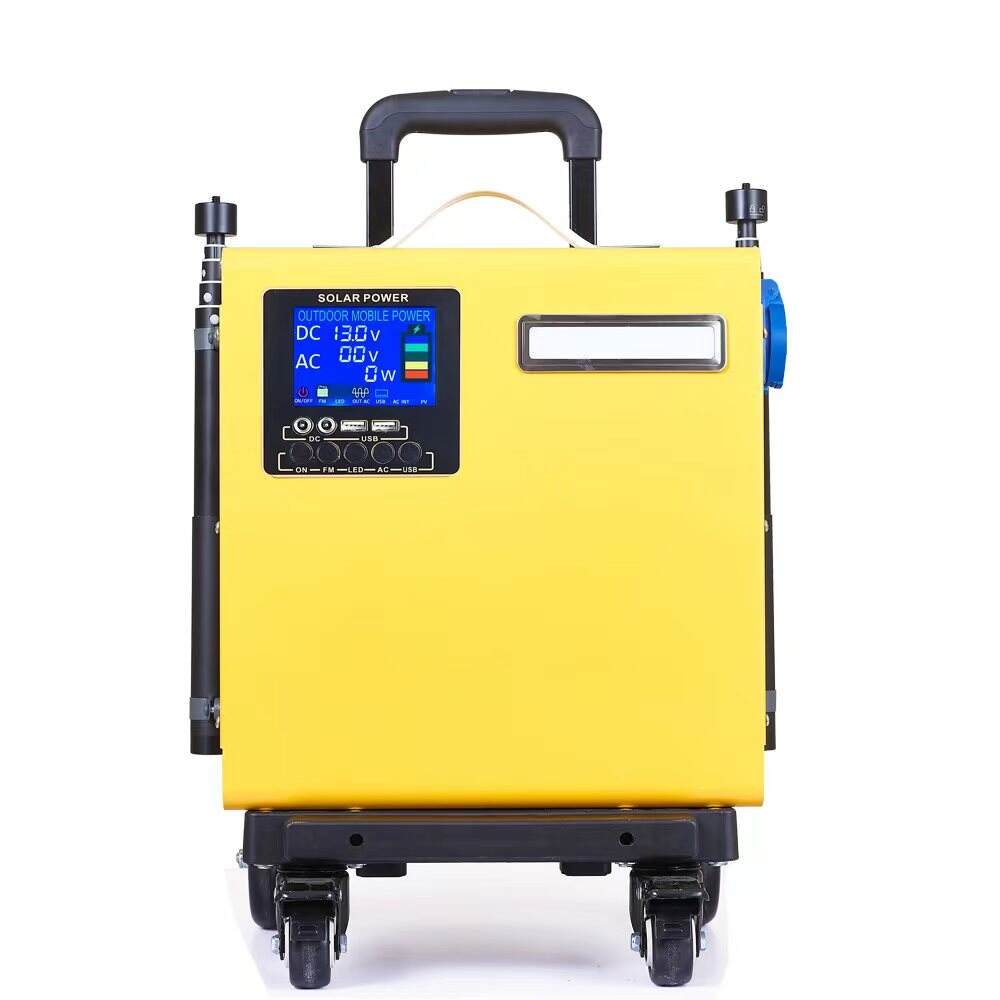Power stations are central to connecting renewable energy to everyday energy consumption. Unlike fossil fuel powered stations, modern power stations must deal with the stretching of time between using the energy produced by the sun. For instance, solar panels convert sunlight to electricity, meaning power stations must store energy produced during peak hours for use during the evening and days with less sunlight. The ability to store and redistribute energy makes power stations indispensable for reliable energy use during home off-grid applications. They balance the supply and demand of renewable energy, which makes it available to users at all times.
Renewable energy integration at power stations primarily relies on two technologies: advanced battery systems and smart inverters. Stations utilize LiFePO4 batteries as they can safely store a lot of renewable energy and have long cycle lives—over 6000 cycles in many cases. The batteries batteries can also be scaled to fit the varying storage needs of power stations as renewable energy fluctuates. Smart inverters play an equally vital role. Some power stations take integration a step further by providing WiFi connectivity for users to track and adjust stored energy in real time. Efficient integration enables the power stations to rely more on renewables.

A major problem with renewable energy sources is intermittency—there is no solar energy at night and wind energy depends on the weather. Power stations solve this by acting as a “buffer” for energy. When renewable sources produce more energy than needed, like a sunny afternoon, power stations save some energy in their batteries. When production is low, like at night, the power stations release the energy they have stored to keep the power supply steady. Power stations help make sure that users have access to electricity and reduce waste of renewable energy. Power stations help make the entire renewable setup more cost effective and practical. For example, a home with a solar panel system and a connected power station won’t have to let excess daytime solar energy go to waste, the power station saves it for night use.
Power stations incorporate renewable energy into very flexible and different scenarios, whether they are residential or off the grid as well. Home users can use small to medium-sized power stations to pair with rooftop solar panels which can store 5kWh or 10kWh, empowering users to power key appliances, which lessens the strain on the main power grid. In off-grid areas where traditional electricity supply is not available, large power stations with 15kWh or 30kWh storage capacity are vital as these stations can store enough solar energy to power entire households or even small commercial setups for several days. A lot of power stations are also designed to be portable which is very useful for outdoor activities where solar energy is the only available renewable energy. This flexibility shows how power stations can meet differing user needs with renewable energy as the core.
Safety and reliability are crucial when the power stations integrate renewable energy, and they achieve this through robust protective measures and safety certifications. Quality power stations add safety protections against overcharging and over-discharging, in addition to short-circuit protection, which prevents battery amp-drawing damage and prevents hazards when saving energy from renewables. Quality stations also hold safety certifications like CE, UN38.3, and RoHS, which are essential to ensuring global safety standards are met—valuable for users from diverse cultural backgrounds and varying safety regulations. Merely complying to standards is insufficient. Quality stations gain global trust through stability, which is proven with long warranties (frequently 10 years). This emphasis on safety and reliability establishes confidence in users, demonstrating that renewable energy is an attainable option for all.